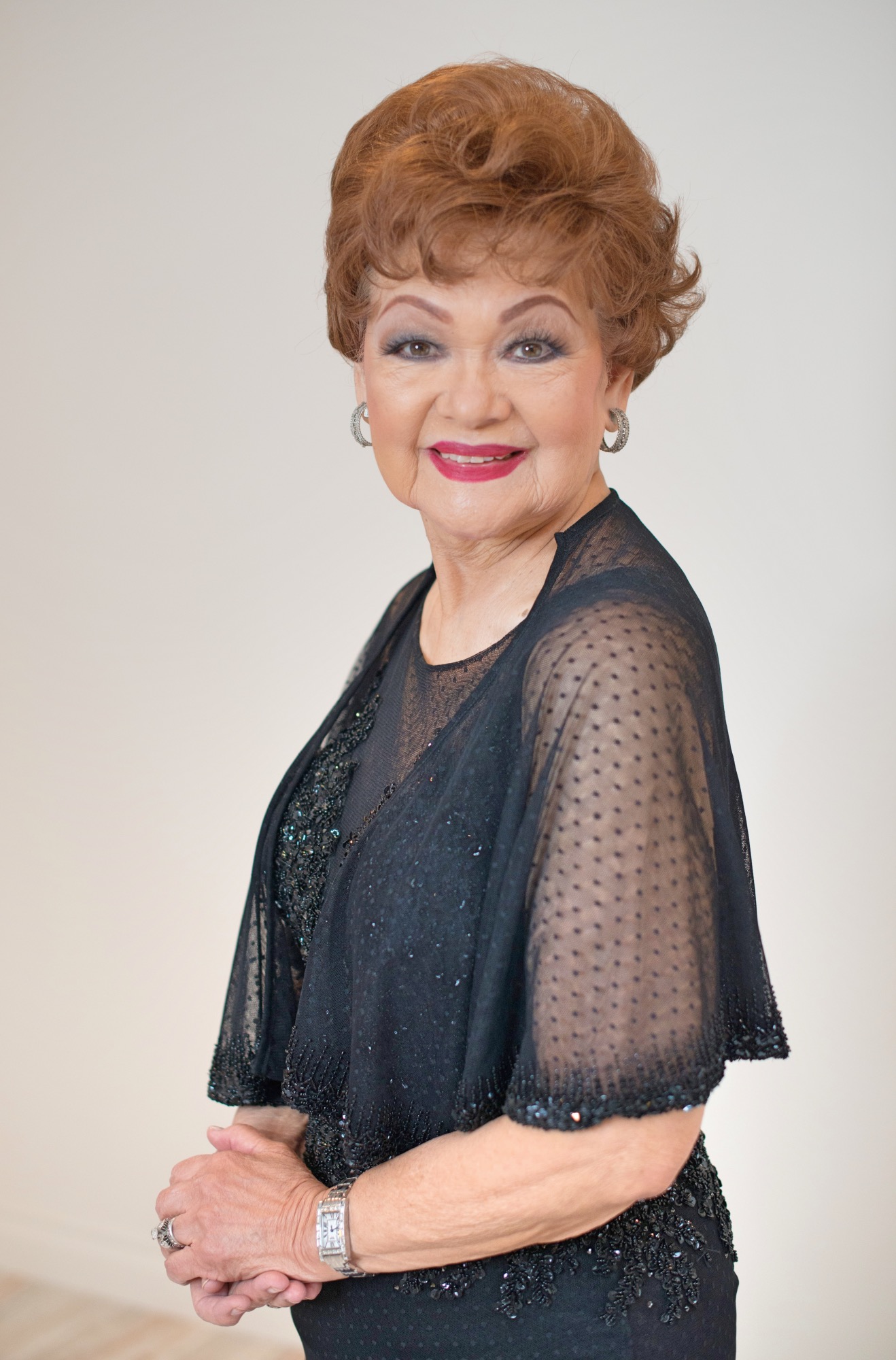
- Industry
Sylvia La Torre, Philippines’ Trailblazing Entertainer, from Radio to Cinema
When she was only five years old in 1938, Sylvia La Torre won a singing contest. At seven years old, La Torre began her film career. She went on to perform and entertain for eight decades.
Turning 89 in June, La Torre is the first Filipino talent to enjoy a very successful career in all major entertainment fields in the Philippines: radio, television, record, stage, and film. It is a pioneering achievement for a woman to break through all those five fields in that era.
La Torre – who is dubbed the First Lady of Philippine Television – has been based in Southern California for many years now.
On her career that encompassed many years, La Torre said in our previous interview, “I’m so blessed by God for letting me live long. I still have my voice to share with all of you.”
La Torre, the daughter of a singer and a movie director, got her invaluable training and experience to become an all-around entertainer in vaudeville. Manila had a rich vaudeville tradition that began in the 1910s, peaked in the 1940s, and ended in the 1960s.
It was in this milieu, when downtown Manila was abuzz with live stage shows, that La Torre, at nine years old, debuted on the Manila Grand Opera House’s stage. “I enjoyed and learned so many things performing with veteran actors and actresses,” she recalled about her child actress-singer years, which included a stint at the Life Theater in Manila.
She added, “Our show was three times a day. Because of this strenuous schedule, it made my voice stronger and more powerful.”
La Torre also joined shows presented by the United States Organizations (USO). “It was an adventure singing for the American soldiers,” she recounted.
Even with her busy schedule as an entertainer, the coloratura soprano found time to be a scholar at the famed Conservatory of Music at the University of Santo Tomas in Manila.
Starting in the 1950s, La Torre recorded more than 300 songs, including the Philippines’ traditional folk songs such as “Sa Kabukiran,” “Mutya ng Pasig” and “Waray Waray.” On the latter song, La Torre reminisced, “It was the title of a movie and I also sang and recorded the song. It became popular when famous American singer Eartha Kitt visited the Philippines and she recorded her own version of ‘Waray Waray.’ ”
As a result of her recordings, La Torre is also known as the Queen of “Kundiman” (traditional Filipino love songs).
When she successfully branched into radio and television in the 1950s and 1960s, La Torre capped her conquest of all five entertainment spheres in the Philippines. She originated a character, Ibyang, on a radio show which she also brought to life in a television series.
A generation of Filipinos loved, and still fondly remember, La Torre as a co-host of a popular daily TV show, Oras ng Ligaya, in the 1960s. She sang, acted, and co-hosted with humor and was quick with adlibs. “We hosted Oras ng Ligaya for over 10 years. Our [co-host Oscar Obligacion’s] families became very close to each other, and we still are, to this day,” she mused.
In cinema, many of La Torre’s films, including her screen debut, Ang Maestra, were evocative of pre and post-World War II Philippines. Sadly, the prints of many of these movies, mostly in black and white, are lost. La Torre’s filmography spans the 1940s to the 1990s.
La Torre’s performances before she finally retired were with the Filipino American Symphony Orchestra (FASO). In 2016, she regaled the audience with her still vibrant soprano, onstage charm, and wit at the John Wayne Performing Arts Center in Glendale, California.
La Torre performed duets with her granddaughter, Anna Maria Perez de Tagle, who is following in her footsteps but in the United States (Godspell on Broadway, Fame on film, and Hannah Montana and Camp Rock on television).
In 2017, FASO honored La Torre with its inaugural Excellence in Music Award. In probably one of her last public performances of “Sa Kabukiran,” which she recorded in 1954, La Torre sang the Filipino folk classic with Maria Christina Navarro, her fellow music awardee. The gala audience in Mary Pickford’s former Hancock Park estate responded with a standing ovation.
There is a clamor for La Torre to be declared a National Artist, the highest recognition given to Filipino individuals who have made significant contributions to Philippine arts.
La Torre and her husband, Dr. Celso Perez de Tagle, have been married for a remarkable 68 years. Their three children, Artie, Bernie, and Cheche, also went into entertainment. La Torre, a devout Catholic, said, “Each time I sing and go on stage, I always perform with God’s help. I feel so proud and fulfilled when people applaud and give me a standing ovation. I am very proud that Anna Maria took after me and is continuing my legacy by singing our ‘kundiman’ songs.”
Asked for the formula for her long life and unflagging energy, La Torre answered, “It has been my practice to always have eight to ten hours of sleep and not to tire myself. I have a proper diet and exercise, although at times I ‘cheat’ with some ‘chicharon bulaklak,’ ‘crispy pata’ and ‘lechon’!
“I’ve also been avoiding cold drinks and ice cream since I was a kid. That helps preserve my voice. I practice every day and for that reason, I can still sing at this age.”
For many Filipinos, Sylvia La Torre is already a National Artist in their hearts and minds.

